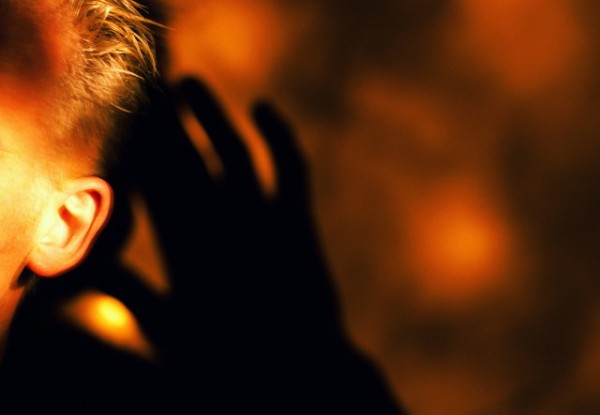“Are you going to take the voice seriously?”
The historian Paul Johnson writes in his spiritual memoir about having once called the prime minister’s office and, instead of getting the secretary’s secretary, the prime minister herself answered. “It happened to me once with a prime minister,” Johnson writes. “But with God it happens all the time.”
I don’t know if Johnson’s experience is like mine, but from that day on, when I prayed, I almost always received a verbal response, often with quite specific guidance. At first, it just seemed an oddity that went too much against my agnostic worldview to be taken seriously. Once my son had classical music playing in his ear all the time. It turned out to be an ear infection, causing buzzing signals that his brain skillfully translated into Mozart. Maybe my prayers were like that.
I would tell Abigail about these odd experiences. While I always disdained paranormal reports, near death experiences, and the like, she did not. I assumed she put the voice in that category. I didn’t really know because, usually, she just took in what I told her and didn’t say much. She explained to me later that she thought I was engaged in a sensitive communication and did not want to create static.
Then, one day, she did speak up. “Are you going to take the voice seriously, or is this just entertainment?”
She had put her finger on the contradiction I was living.
The voice was too real and benign and authoritative to ignore. Yet I could not imagine acting on it. Well, actually I could and did act on it, but without taking it seriously. I would be told to do this or that. Sometimes the guidance was about some matter facing me that day, and following the guidance usually worked out pretty well. Other times I received arbitrary directives which, since harmless, I followed. For example, one morning, Abigail and I had just sat down to breakfast when I was told,
Don’t eat.
So I just sat there for maybe fifteen or twenty minutes.
You can eat now.
I always did as I was told, but it was still more like a game of Captain-may-I than a life imperative. I was not ready to answer Abigail’s question.
On a visit to Boulder, where I used to teach, I told a former colleague about my experiences. I was afraid he would think, “poor Jerry, he has gone daft.” But he listened with interest, and recommended that I read American philosopher William James’s classic essay, “The Will to Believe.” An influential British scientist had declared, as a principle of the ethics of belief, “It is wrong, always, everywhere, and for every one, to believe anything upon insufficient evidence.” The scientist had religion in his crosshairs.
James responded that there are some beliefs that, if you accept them, will shape your whole life. And shape it in a different way if you do not. You cannot remain neutral; yet evidence is inconclusive either way. You just have to decide which belief you would rather live with.
My situation seemed to be exactly what James was describing.
Facing a similar choice between belief and unbelief, the seventeenth-century philosopher Blaise Pascal, had seen it as a wager. If I believe in God and am wrong, well, I’m dead anyway, so I haven’t lost much. But if I don’t believe in God, and there is one … well, you might say, there’s hell to pay.
I faced my own wager. Either I follow the voice or I don’t. If I follow the voice and it is not divine, what is the worst that can happen? Well, I would be a fool, maybe a laughingstock, and would say goodbye to an excellent career. But, if I decide not to follow the voice and it is divine, then I would have missed my purpose in this life. What if Moses had done that? Or George Fox, the founder of the Quakers? The Old Testament is full of people called by God, who at first demur and only reluctantly heed the call. Even Moses worries (“suppose they do not believe me”) and feels inadequate to the task (“I have never been eloquent … I am slow of speech and slow of tongue”).
I am not comparing myself to these great religious leaders, but all of us in our lives face moments when we have to decide whether to respond to a certain call—be it the call of duty or service or simply, as Joseph Campbell puts it, to “follow your bliss”—rather than continue a more conventional or comfortable course. If I had to live with one worst-case scenario or the other, I could live with being a fool, if that’s what it came to, but I could not live with having refused God’s call.
Making a decision to believe is not quite the same as accepting that belief in your bones.
It is more like the first step toward believing. My philosophy still had no place for God—especially for a God who talks to me. Outside the Bible, who talks to God?
Another notable book by William James, The Varieties of Religious Experience, helped answer this question.
The founder of pragmatism, the only distinctively American school of philosophy, James also taught physiology and psychology. He was a man of science but, for him, empiricism did not mean restricting our understanding to what science registers. He looked without prejudice at all kinds of human experience. He talks about famous people such as George Fox as well as ordinary people who have received answers to prayer or psychic intuitions or visitations from recently-departed family members.
Many people have had moments of divine or non-natural awareness, probably more than feel comfortable talking about them publicly.
Duke English professor Reynolds Price writes about his own battle with cancer. During the course of his treatment, he had an encounter with Jesus in a vision or, as it seemed to him, in another dimension. After he published his story, he received letters from many people with similar experiences—experiences that they had never told anyone. My experience was not as out-of-line as I had thought.
I decided to follow the voice and see where it would lead me.









